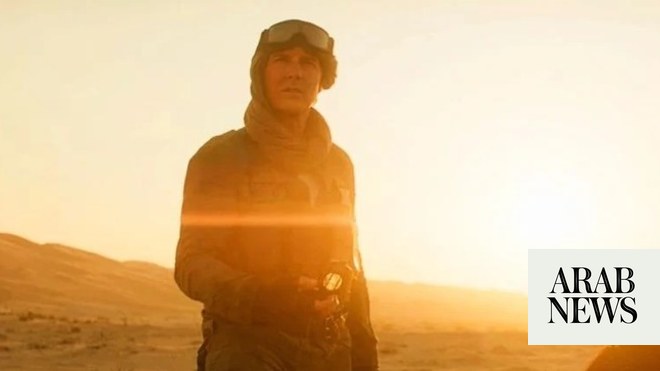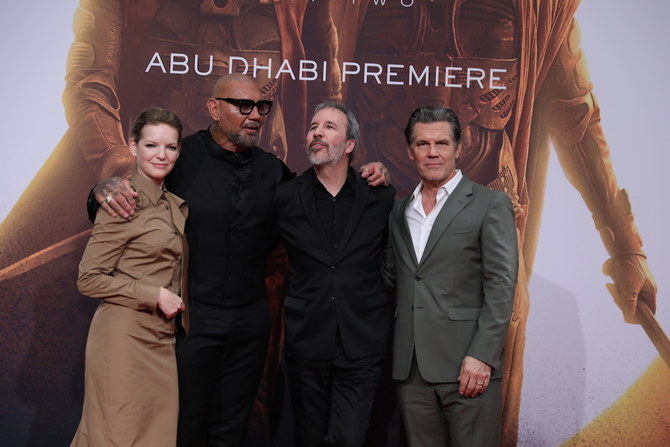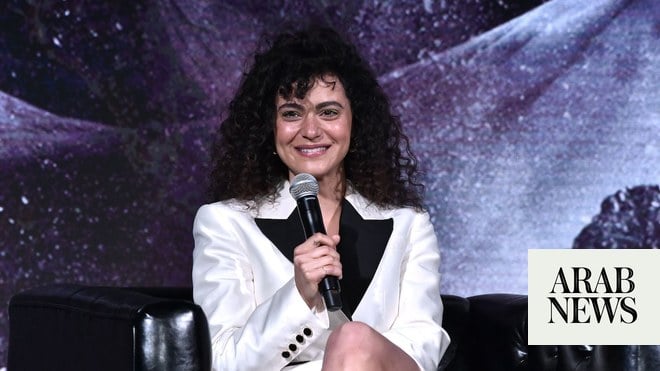
OMV is shifting attention toward the Middle East as its chemist chief executive chases his vision of making the Austrian oil and gas group a major supplier of plastics
OMV boss Rainer Seele has spent more than €4 billion ($4.5 billion) — 40 percent of the group’s M&A budget until 2025 — for oil and gas concessions in the region
VIENNA: After years of largely banking on low-cost Russia for growth, OMV is shifting attention toward the Middle East as its chemist chief executive chases his vision of making the Austrian oil and gas group a major supplier of plastics.
OMV boss Rainer Seele has spent more than €4 billion ($4.5 billion) — 40 percent of the group’s M&A budget until 2025 — for oil and gas concessions in the region, a 15 percent stake in Abu Dhabi National Oil Co’s (ADNOC) refining business and a to-be-formed trading joint venture with ADNOC and Italy’s Eni.
“We want to have a fully integrated business model in Abu Dhabi — from the well via the refinery and the petrochemicals all the way to marketing and trade in international markets,” the chief of Austria’s second-largest listed company told shareholders last month.
OMV traditionally earns its money from producing, distributing and refining oil and gas in Europe. A focus on low-cost oil and gas fields in Russia — a source of investor concern due to US and EU sanctions — helped the group get back on its feet financially in recent years and become one of the best cash-flow generators in the sector.
After fixing a price this month for the purchase of Siberian gas assets from Gazprom, OMV has largely achieved its Russian expansion plans.
The Russia-led Nord Stream 2 gas pipeline, of which OMV is a financing partner, could face delays. However, OMV’s downside risks are limited to the €950 million it has committed, of which it has paid €644 million so far.
“This is already captured by its discounted valuation relative to its peers,” analysts at Berenberg said in a note.
Seele’s new, Middle East-focused strategy stems from a shift in the environment surrounding OMV’s business model, with challenges created by the politically promoted rise of renewable energy and increased use of electric vehicles.
Consultancy Wood Mackenzie forecasts that demand for oil in developed countries will revert to structural decline next year and drop by about 4 million barrels per day (bpd) by 2035. In contrast, it expects demand in developing economies, mainly in Asia, to increase by nearly 16 million bpd in the same period.
The rise in developing-country demand is seen largely driven by the petrochemicals industry, which uses oil to make the plastics needed for fertilizers, packaging, detergents and clothes, as well as for electric-car parts, solar panels and wind turbines.
This is where Seele gets excited. Refraining from expanding into renewables such as BP and Royal Dutch Shell, the CEO plans to monetise his oil with the expected surge in demand for plastics and also jet fuel, especially in China.
For Seele, the new focus is a journey back to his roots. The 58-year-old German holds a PhD in chemistry and started his career as a chemical research scientist.
He has chosen the United Arab Emirates as a base from which to secure a big piece of the Asian petchem pie, aiming to maximize profit via the entire value chain.
“What I am always preaching is, hey guys, try to think integrated,” he told Reuters when asked why he did not simply buy into China. “I cannot come up with an integrated business model in Asia if I buy into a petchem unit there. It would be an isolated investment.”
The UAE, a strategic investor in OMV since 1994, has aggressive energy ambitions for the coming decade. It is cooperating with international groups including Shell, Germany’s Wintershall DEA and US investment firms KKR and BlackRock to pioneer approaches and technologies.
Last year, the UAE launched a $132 billion capex program to become self-sufficient in gas by 2030 and establish itself as an exporter of petrochemical products. It plans to invest $45 billion alone into the Ruwais complex, which is located 240 km (150 miles) west of Abu Dhabi, to make it the largest integrated refinery/petrochemicals facility in the world.
ADNOC Refining plans to spend $1.9 billion annually, according to its five-year business plan. As OMV holds 15 percent, its share would be €285 million per year.
A cost optimization of Ruwais operations will be followed by investments to enable the use of different feedstocks and the processing of heavier, more sour crude at the site, Seele said in explaining the plans for ADNOC Refining. “We will create a Bordeaux,” said Seele, a connoisseur of red wine. “Right now we are only running with Cabernet Sauvignon in Abu Dhabi and we will add some Merlot.”
One challenge will be to export to Ruwais OMV’s European model of bundling refining and petrochemical production in integrated hubs. “We are transferring our European refineries now from predominantly fuel refineries to jet fuel and petchem units,” Seele said. “That’s the transformation we have in mind (for Ruwais as well).”
To deliver on its goal, OMV is working closely with its subsidiary Borealis, which partly runs the Ruwais refinery via its Borouge joint venture with ADNOC. Seele and Achim Stern, chief executive at Borealis, plan big.
Borouge hopes to give the final go-ahead for the construction of a fourth petrochemical complex at the site next year, Stern told Reuters. He did not disclose the cost of the new complex, but said it would be a “multibillion” decision.
OMV’s purchases of a 20 percent stake in Abu Dhabi’s SARB and Umm Lulu offshore oil concessions and a 5 percent stake in the Ghasha offshore gas and condensate fields from ADNOC were crucial for growth as they secure access to cheap feedstock, Seele said.
OMV also plans to recycle used plastic and convert it into synthetic crude oil at the Abu Dhabi complex. It is testing the patented, so-called ReOil technology at home.
“What we see in the market is a clear signal. If we don’t find a solution to recycle plastics, our polymer business will be negatively impacted,” the CEO said with a view to investors, who want the industry to work harder against climate change. “At the latest, in 2025 we would like to have a commercial plant.”
Analysts have praised OMV’s plans, saying major players in the oil and gas industry may envy the company for the deals with its financially strong shareholder ADNOC. However, risks remain: The emirate’s gas fields have proved challenging to monetise in the past due to high operating costs and artificially low local prices for the fuel.
“New technologies and development plans can improve this, but the fields still remain relatively difficult,” said Robin Mills, chief executive at energy consultancy Qamar Energy in Dubai.
Another challenge is inadequate infrastructure. The pipeline network needs to be extended, Seele says, at the same time indicating a solution is under way. “If you identify a problem, solve it.”












